Central Nervous System
The central nervous system (CNS) is a complex network of nerves and cells that carry messages to and from the brain and spinal cord. It is the control center for the entire body and is responsible for processing and interpreting information from the peripheral nervous system.
Anatomy of the Central Nervous System
The CNS consists of the brain and spinal cord. The brain is divided into several regions, including the cerebrum, cerebellum, and brainstem. Each region plays a specific role in controlling various bodily functions, such as movement, sensation, and cognition. The spinal cord serves as a pathway for transmitting signals between the brain and the rest of the body.
Functions of the Central Nervous System
The CNS has several important functions, including:
- Processing Information: The CNS processes sensory information from the environment and coordinates appropriate responses.
- Controlling Motor Functions: The CNS is responsible for controlling voluntary and involuntary movements of the body.
- Regulating Homeostasis: The CNS helps maintain internal balance by regulating functions such as heart rate, blood pressure, and body temperature.
- Cognitive Function: The CNS is involved in higher mental functions, such as learning, memory, and problem-solving.
Study Guide for the Central Nervous System
Here are some key topics to focus on when studying the central nervous system:
- Structure of the Brain: Understand the different regions of the brain and their respective functions.
- Spinal Cord Anatomy: Learn about the structure and function of the spinal cord, including its role in transmitting nerve signals.
- Neuron Function: Understand the basic function of neurons and how they transmit signals within the CNS.
- CNS Disorders: Explore common disorders and diseases of the CNS, such as stroke, Alzheimer's disease, and multiple sclerosis.
- Central Nervous System Development: Study the embryological development of the CNS and how it matures over time.
By mastering these topics, you will gain a comprehensive understanding of the central nervous system and its critical role in human physiology and behavior.
.◂Biology Worksheets and Study Guides High School. Plant structure and function
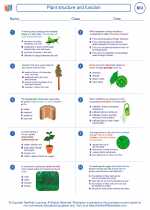
 Worksheet/Answer key
Worksheet/Answer key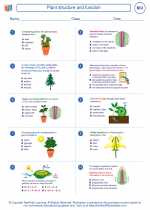
 Worksheet/Answer key
Worksheet/Answer key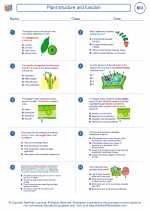
 Worksheet/Answer key
Worksheet/Answer key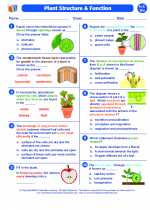
 Vocabulary/Answer key
Vocabulary/Answer key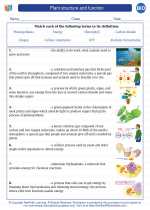
 Vocabulary/Answer key
Vocabulary/Answer key
